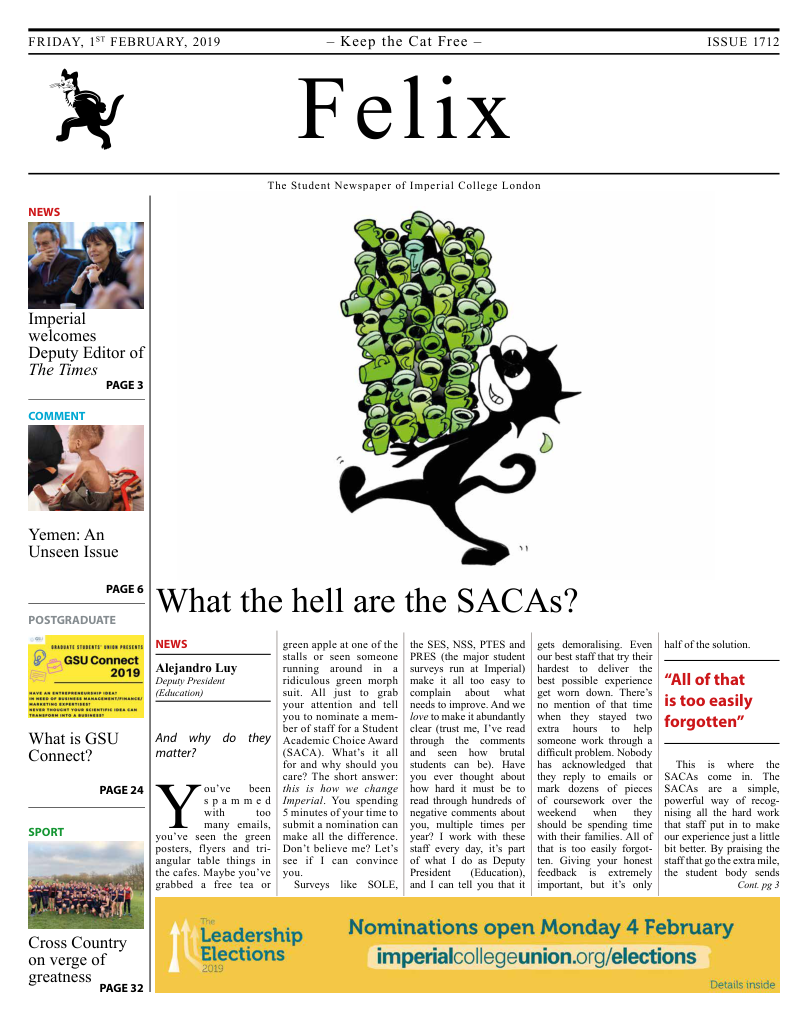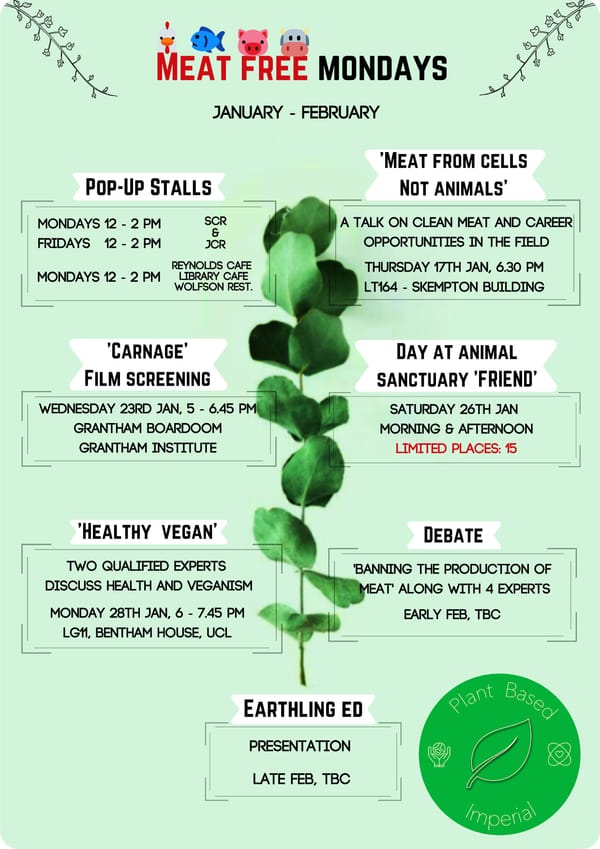FRIENDs for life
Environmental society hosts a visit to an animal sanctuary

UUpon arrival to FRIEND animal sanctuary, we were greeted by the loud clucks of chickens and the turning heads of cows. We made our way through the muddy terrain to an open field, where we were welcomed by Dave, who was a full-time volunteer at the sanctuary. Behind him followed Ging whose puppy eyes gleamed with excitement at the sight of a big group of visitors. The early start did not seem to have taken its toll on anyone, and just like Ging, we were all hyped for the day ahead.
We started by assisting the sanctuary with its daily chores; trainers were exchanged for wellington boots, and backpacks for shovels and spades. My small group started by wheelbarrowing fresh hay to the cow shed. Distributing hay amongst the cows was slightly daunting at first, but the mighty cows were incredibly tranquil and undisturbed by our presence. Some were even quite playful; they approached us, eager for a pat on the head or to be showered with confetti of hay.
Overall, the volunteering work was very minimal, as there was a huge group of visitors on the day. By noon, we were free to just spend time with the animals. It was lunch time for the pigs, and their diet is surprising to say the least. From big trays, we grabbed avocados, bananas, melons and pineapples and fed them to the pigs. Donated by supermarkets, the fruits were either slightly past shelf life or didn’t fit EU standards and would have otherwise been dumped in landfills. The pigs smashed open the melons with forceful bites, and they gobbled down the bananas and avocados. Once they were satiated, they each tottered back to their own paddock and went back to sleep (relatable).
Clouds cleared briefly and we were blessed with warm sunshine as we fed tangerines to the cows who would extend their tongues and swiftly sweep the fruit from your palm. If you weren’t quick to retract your hand, you may feel the sharp graze of the rough tongue of the cows. The cows had fur that felt like velvet, and they each had their own unique mop of hair.
‘FRIEND was established in 1994, when its founder Marion bought a disabled lamb at a livestock market. She then decided all animals that came would have a life of peaceful existence for the rest of their days. Today FRIEND Farm Animal Sanctuary is run with a vegan philosophy of education about animal welfare and the need for a world of compassion to all its inhabitants, fauna and flora alike. As well as educating visitors about the animals, we are working to make the sanctuary an example of ecological sustainability, for example planting native trees and growing food as part of a permaculture design.’
‘Our mission is to offer sanctuary to unwanted, neglected and abused animals, while educating about animals, veganism and ecological sustainability. We hope to contribute to a world in which humans and animals can live in a mutually sustained environment through practices like vegan organic permaculture farming systems.’
Most of the animals at FRIEND were either rescued from horrific living conditions or from slaughter. Animals are definitely capable of suffering in the same way as humans. They have a central nervous system, meaning that they have the capability to suffer. Pigs are more intelligent than dogs and human babies, so if people believe that dogs and babies can suffer then pigs can too. Since it was my first time being so close to pigs, chickens or cows, it was very moving to see them live so happily at the sanctuary. For the first time, I truly saw the animals as affectionate individuals. Each had their own personality, and it is difficult to think that they could have been chopped up and served up on a dinner plate. The experience at FRIEND is a touching memory that I will cherish, and I hope someday to return and see the animals.






